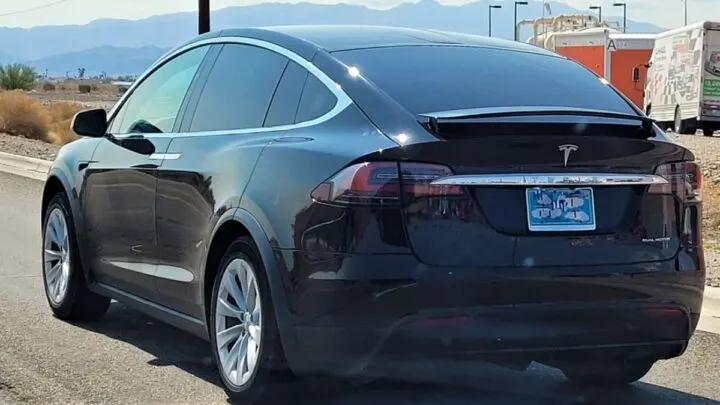A question that often creeps into every Tesla owner’s mind is whether their car batteries will go bad.
And you might have heard that Tesla charges highly for battery repair or replacement.
So if the costs are high, are the batteries reliable? How often will they go bad? And, what’s the cost to repair or replace?
Generally, a Tesla battery pack capacity can range from 65 to 100 kWh (kilowatt-hours). This capacity is enough to drive the car through as much as 375 miles per charge. Additionally, on average, the batteries will last 1,500 charge cycles, or 500,000 miles.
Read on to find out more about Tesla batteries.
Do Tesla Batteries Go Bad?
Electric vehicles (EVs) have an advantage over internal combustion engines in terms of durability, as they have lesser moving parts.
A reason for that is that they rely on electric motors, which are very durable and reliable, to charge their robust batteries.
However, Tesla batteries can go bad if not cared for properly and kept within the appropriate temperature range.
What’s the Cost To Replace Tesla Batteries
Like any other rechargeable battery system, Tesla batteries will naturally degrade over the vehicle’s lifetime.
However, some conditions such as poor charging habits will lead to a faster degradation, ultimately forcing you to either go for a new alternative or a battery replacement. But at what cost?
Tesla doesn’t have an open book pricing list or an official guideline for its battery pack repairs.
In April 2019, Tesla CEO Elon Musk asserted that the replacement costs of a Tesla Model 3 battery module would range between $5,000 to $7,000. And the cars have four or more modules per battery pack!
Let’s look at what you’ll spend to replace your battery pack if the warranty does not cover you.
Tesla Model S/ Tesla Model X
The cheapest estimate for the replacement costs of a Tesla Model S or Model X battery pack is between $13,000 to $14,000.
Here’s a breakdown of the total costs.
- A new battery pack – $12,000 to $13,000.
- Related accessories and miscellaneous parts – $100 to $200.
- Labor costs – $500 to $600 at the $180 per hour rate.
Tesla Model 3
There isn’t much information on the cost to replace a Tesla Model 3 battery, but expect to spend close to $13,500 for a 75 kWh battery.
However, this cost tends to be slightly higher than the current market price for a Tesla electric battery, which costs anywhere between $132 to $135 per kWh.
Therefore, as the Model 3 batteries range from 50 kWh to 82 kWh, expect to pay between $7,000 and $11,000 for a replacement, minus the labor costs.
Here’s a breakdown of the total costs.
- A new battery pack – $7,000 to $13,000
- Related accessories and miscellaneous parts – $100 to $200
- Labor costs – $500 to $600 at the $180 per hour rate.

Tesla Model Y
The Model Y has good and fair-priced batteries. Therefore, unless you abuse your vehicle’s battery pack, you should expect to use it for the EV’s lifetime.
However, if you need to replace yours, all it takes is $11,000 to $13,000.
What Determines the Range of a Tesla Battery?
If you’re a seasoned Tesla owner, you may have noticed that the different models have different battery capacities and hence varying ranges between charges.
But what determines a Tesla battery range? Well, it depends on the following three factors:
- Battery size and Tesla Model
- Your battery charging and usage habits
- Age
Battery Size and Tesla Model
A common question you’ll often hear is why Tesla cars are so expensive? As a matter of fact, the cheapest or most affordable Tesla Model 3 isn’t actually cheap.
The answer is that premium battery technology is costly, and a lot of research and development goes into developing sustainable batteries.
In return, it has resulted in skyrocketing battery price tags.
For example, the smaller battery Model 3 has an MSRP of $46,990 and a full-charge range of 272 miles. In comparison, a $104,990 Model S has a full-charge range of 405 miles.
Your Battery Charging and Usage Habits
Tesla batteries are durable and reliable, primarily when you treat them well.
Poor habits such as frequent fast charges and discharges will ultimately damage your battery pack and lower its capacity.
A recent study concluded that fast charging subjects the battery to sudden gushes of power, which tend to raise its temperatures.
Tesla recommends proper battery care and avoiding exposing your vehicle to ambient temperatures higher than 60 °C or below -30 °C for more than 24 hours at a time.
Additionally, avoid charging your Tesla batteries to 100% or draining them to zero regularly.
Failure to charge your batteries well will ultimately lower their range.
How You Drive
Your driving habits are closely tied to your charging habits, since the more you drive, the more you’ll need to replenish the batteries.
Driving fast draws more current from the batteries, hence lowering the distance you can cover between charges.
Aging
One of the factors you have no control over is the aging aspect of the Tesla batteries.
As we’ve seen, the batteries last up to 20 years or more than 500,000 miles before needing replacements.
According to Tesla’s data, the average battery pack should retain close to 90 percent of its original capacity after 200,000 miles.
Final Remarks on Tesla Batteries
As much as Tesla cars are generally more expensive than their combustion engine counterparts, they’re generally cheaper to maintain.
Their batteries last more than 250 miles between charges, which is also more convenient when considering refueling times.
